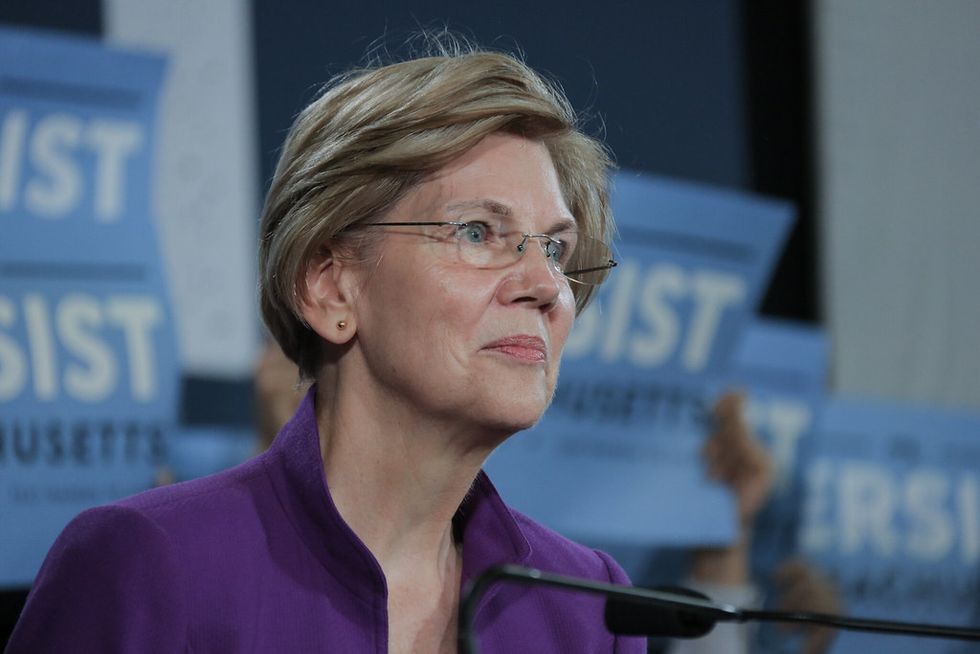When you see someone doing a job poorly, you often think about what you would do differently if you were in their position. Some may even go so far as to tell them what they are doing wrong and how they could do better to correct it. Everyone has an opinion on how things should be done and what need be accomplished to get there. This feeling is not one only felt by you about your boss, it is one felt by much of the American public about our president.
It is obvious that there is a divide in our country, but no matter who you are there is likely something you would do differently if you were in the president's shoes. Many people feel that the president is not qualified enough and feel they could do his job. This feeling spreads across more than the public, it spreads into the other side of the aisle. The Democratic Party have begun preparing to find a candidate to go against President Trump, but there is one small problem; there are too many of them.
Some people cannot have too many options on a menu, much less on a ballot. It can be easy to feel overwhelmed and difficult to clearly assess all the options when presented with more than two. When walking down a path, if you see the path diverge into two separate directions most would not find it too difficult to pick a path and walk down it. But if the path suddenly diverged 15 different ways, I personally would turn around and go home. The amount of choice is too much for most people's brains to properly take in, leaving many feeling anxious and overwhelmed. Unfortunately, the option to turn around and go home is not on the ballot. This is where, whether you want to choose or not, the nation has to pick one person, one path.
Currently, there are 15 people campaigning for your vote to win the nomination and go against President Trump. Those in the running are Sen. Kirsten Gillibrand, former Vice President Joe Biden, former Rep. Beto O'Rourke, former Gov. John Hickenlooper, Gov. Jay Inslee, Sen. Bernie Sanders, Sen. Amy Klobuchar, Sen. Elizabeth Warren, Sen. Cory Booker, Sen. Kamala Harris, ex-San Antonio Mayor Julian Castro, Rep. Tulsi Gabbard, former Rep. John Delaney, author Marianne Williamson and former tech executive Andrew Yang. Now if you completely glazed over the laundry list of candidates, you are experiencing the paradox of choice.
I'm not disregarding competition, but I am asking for fewer options. Making a decision is hard! People don't want to make too many decisions in their daily lives. Barry Schwartz, a professor at Swarthmore College, studies the link between economics and psychology. He literally wrote the book on how as the number of choices increased, so did the level of people's dissatisfaction. His book, The Paradox of Choice, analyzes the deep desire for freedom of choice coupled with the overall well-being of an individual.
As Americans, we assume that more choice means better options and greater satisfaction. But we have to beware of excessive choice. This overload can make you question the decisions you make before you even make them, it can set you up for unrealistically high expectations, and it can make you blame yourself for any failures. In the long run, this can lead to, as Schwartz puts it, "decision-making paralysis, anxiety, and perpetual stress." In a culture that tells us that there is no excuse for falling short of perfection when your options are limitless, too much choice can lead to clinical depression.
This paralysis becomes all too real when looking at the candidates vying for the Democratic nomination. Even though every candidate is different, the amount of choices gets overwhelming. Starting at one end of the spectrum we see the democratic socialist, Sen. Bernie Sanders. His second time seeking the nomination, he aspires to create "an economy that works for all, not just the very wealthy," as stated in his speech on democratic socialism. While at the other end there is Beto O'Rourke who political analysts classify as a progressive or centrist, according to Politico. He has even sponsored bipartisan bills as well as broken with his party on issues like trade. Even former Vice President Joe Biden is running. Biden, who has supported universal health care, reduced military spending, and same-sex marriage is adding renewable energy subsidies, tax credits for students, and student loan forgiveness to his platform.
Those are just three of the most popular candidates and that paragraph was already too long. Out of the other 12, they all end up falling somewhere between Centrist-O'Rourke and Socialist-Sanders, all of them just different variations of a similar platform. When the primaries come up, it will be incredibly difficult for people to choose between the small and specific issues that distinguish each candidate from the next. So don't get too scared, someone will get chosen. Whoever it is will no longer have the job of competing with 14 people with similar views, but will have the difficult job of defending themselves against someone who does not even have the same points.

















